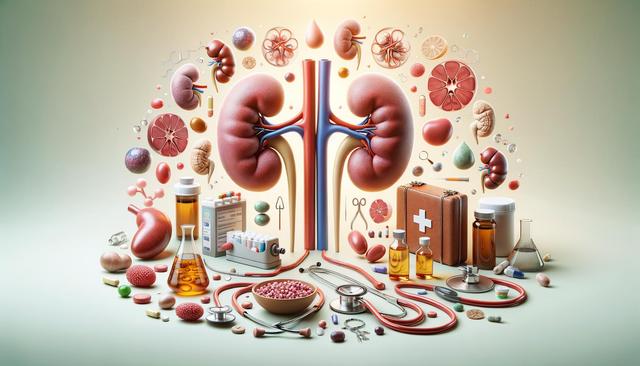What Is Kidney Disease?
Kidney disease, also known as renal disease, refers to any condition that impairs the function of the kidneys. These organs are responsible for removing waste, balancing electrolytes, and regulating blood pressure. When they are damaged, waste products can build up in the body, leading to serious health complications. There are two main types: acute kidney injury, which develops suddenly, and chronic kidney disease (CKD), which progresses over time. While acute cases may be reversible with treatment, CKD often requires long-term management and can lead to kidney failure if left untreated.
Common causes of kidney disease include diabetes, high blood pressure, and certain autoimmune disorders. Infections, prolonged use of certain medications, and genetic conditions can also contribute. Early detection is key, as symptoms often go unnoticed until significant damage has occurred. Regular health checkups and blood and urine tests can help identify kidney issues before they advance.
Recognizing the Symptoms
Kidney disease is often called a “silent disease” because symptoms may not appear until the condition has significantly progressed. However, there are several signs that may indicate a problem:
- Fatigue and weakness
- Swelling in the legs, ankles, or feet
- Changes in urination (frequency, color, or presence of blood)
- Persistent itching
- Shortness of breath
- High blood pressure
These symptoms can also be associated with other health issues, making it important to consult a healthcare provider for proper diagnosis. In advanced stages, individuals may experience chest pain, confusion, and even seizures due to the build-up of toxins in the body. Monitoring these signs and maintaining a record of changes can support early intervention.
Risk Factors and Prevention
Several risk factors increase the likelihood of developing kidney disease. The most significant include:
- Diabetes and high blood pressure
- Family history of kidney disease
- Obesity
- Smoking
- Older age
- Frequent use of over-the-counter painkillers
Preventing kidney damage involves managing these risk factors effectively. Lifestyle changes can play a vital role. For example, maintaining a healthy weight through regular exercise and a balanced diet can help control blood sugar and pressure. Quitting smoking and limiting alcohol intake also reduce the strain on the kidneys. Drinking enough water and avoiding excessive use of medications that affect kidney function are also practical steps toward prevention.
Treatment and Management Options
Managing kidney disease depends on its severity and underlying cause. In early stages, lifestyle modifications and medication can slow the progression. These may include drugs to control blood pressure, blood sugar, and cholesterol levels. In more advanced stages, treatment focuses on replacing lost kidney function through dialysis or kidney transplantation.
Dialysis is a procedure that removes waste and excess fluids from the blood when the kidneys can no longer perform this function. There are two types: hemodialysis and peritoneal dialysis. Each has its own requirements and lifestyle implications, and the choice depends on the individual’s health and preferences. Kidney transplantation, while more invasive, offers a longer-term solution and can improve quality of life.
It’s crucial to work closely with a healthcare team that may include a nephrologist, dietitian, and primary care physician. Adhering to a kidney-friendly diet low in sodium, potassium, and phosphorus can also enhance treatment outcomes. Regular monitoring through lab tests helps adjust treatment plans as needed.
Living Well with Kidney Disease
Although a kidney disease diagnosis may feel overwhelming, many people lead fulfilling lives with proper management. Key to this is adopting a proactive approach to health, which includes:
- Following a tailored diet plan
- Staying physically active
- Taking medications as prescribed
- Attending regular medical appointments
- Managing stress through techniques like meditation or counseling
Support networks, including family, friends, and patient advocacy groups, can provide emotional encouragement and practical advice. Education is also empowering—understanding the condition helps individuals make informed decisions and feel more in control of their health journey.
Technology is playing an increasing role in disease management. Mobile apps for tracking symptoms and medication, as well as telehealth services, offer greater convenience and support. Living well with kidney disease is possible when individuals take an active role in their care and access available resources.
Conclusion
Kidney disease is a serious health issue, but with early detection, effective treatment, and lifestyle adjustments, many individuals can manage the condition successfully. Whether you’re at risk or already diagnosed, staying informed and engaged with your healthcare team is essential. By taking steps to monitor your health and make kidney-conscious choices, you contribute to your overall well-being and long-term quality of life.




Leave a Reply